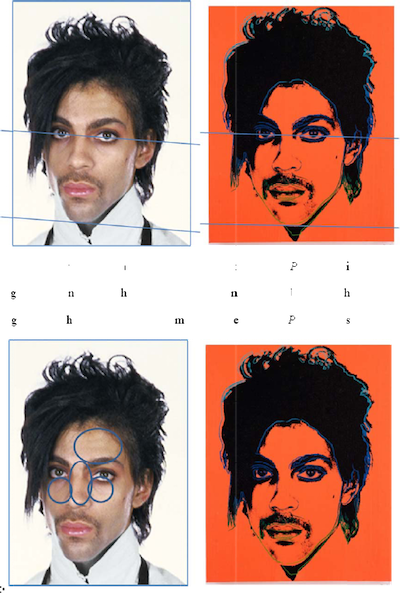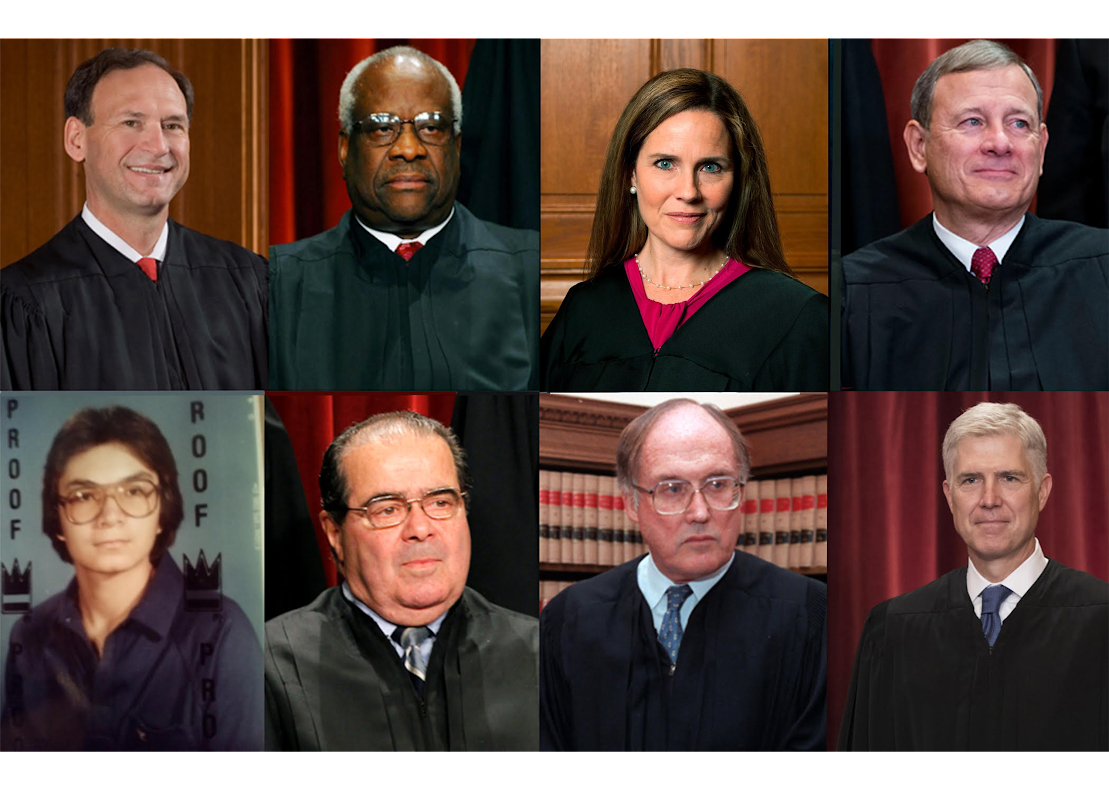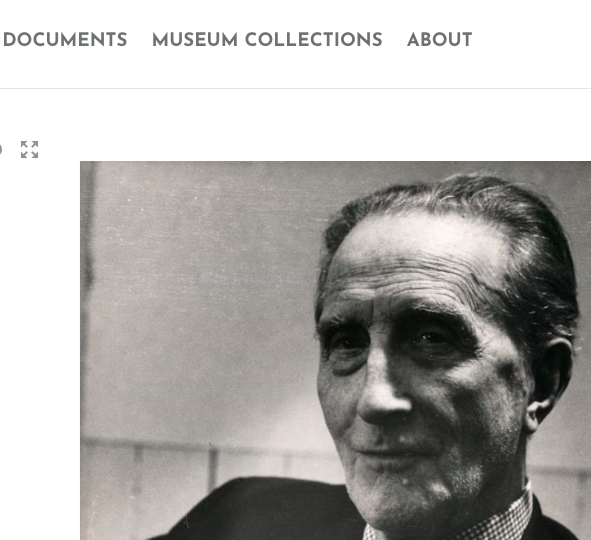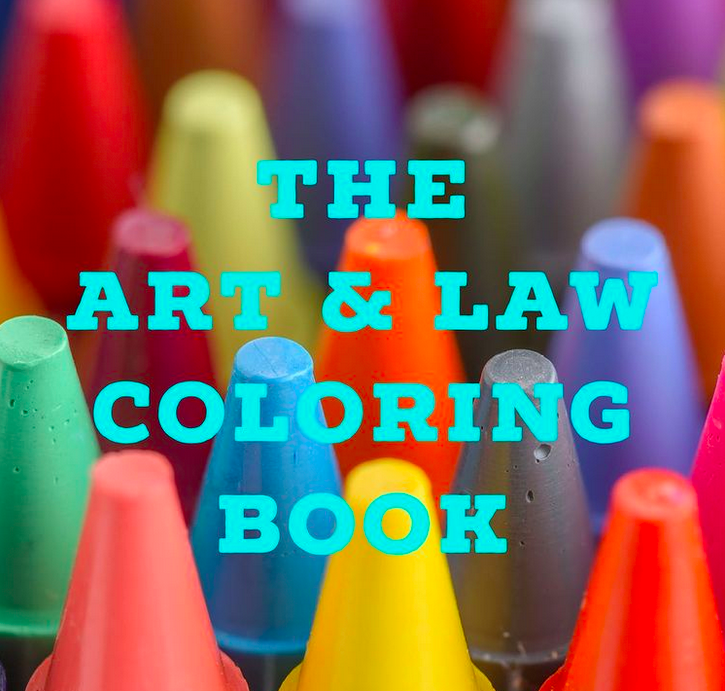A judge in New York has dismissed a “Nazi loot” case by the heirs of George Grosz, who claimed that three paintings by Grosz now in the MoMA collection were taken and traded during the 1930s.
Will textualism save our copyright planet? Warhol Fdn v. Lynn Goldsmith headed to SCOTUS
Images of Goldsmith and Warhol at issue. The U.S. Supreme Court will review a ruling that an Andy Warhol print infringed a copyrighted photograph taken by photographer, Lynn Goldsmith, of the late musician, Prince. We certainly hope--as much as one can hope for anything these days--that SCOTUS cleans up the wasteland that has become of "fair use" interpretation. One would think, and hope I suppose, that with many of the sitting justices adhering to textualism, they will fully jettison the nonsensical "transformativeness" test that has plagued us like a really bad case of Covid since the mid-1990s. Docs here, via ...


Podcast: Stephanie Drawdy and Sergio Munoz Sarmiento on All Things Art and Law
Ahh...Youth! Sergio Munoz Sarmiento. (2015 - ongoing), C-Print. © and TM Sergio Muñoz Sarmiento. All rights reserved. I had a lovely conversation with fellow lawyer and artist, Stephanie Drawdy, on the NFT craze, pets, art law, and the origins of The Art & Law Program. You can listen to the Podcast here. Hope you enjoy!


Marcel Duchamp archives now online, free of charge
The Philadelphia Museum of Art, the Centre Pompidou, and the Association Marcel Duchamp have digitized their vast archives of material on the Dadaist and placed it online, where it is free to all. Enjoy!


The Art & Law Coloring Book
If you have kids at home and want them to do something fun and educational, try the Art & Law Coloring Book, an ongoing project by The Art & Law Program. Really a great collection of drawings by great artists, including: Emma Jane Bloomfield Damien Davis Molly Dilworth João Enxuto Soda Jerk Clare Kambhu Alexandra Lerman Erica Love Douglas Melini Sergio Muñoz Sarmiento Melinda Shades Elisabeth Smolarz Gabriel Sosa Alfred Steiner Valerie Suter Happy coloring!


What are NFTs and what does it mean to own one?
If you're confused as to what the hell NFTs are, particularly art NFTs, here's a new article by Alfred Steiner that pretty much walks you through and safely out of the NFT hell. In his article, Steiner explains what NFTs are and what it means to own one. He also discusses why that meaning of ownership—which may appear novel to many—isn’t new at all when considered against the backdrop of the market for conceptual art. Steiner concludes with some observations about how NFTs may be good and bad for the art industry.


On Wednesday, January 27, 2010, the U.S. Court of Appeals for the First Circuit handed Christoph Büchel and visual artists a major victory. The First Circuit found sufficient evidence to allow a jury to find that Mass MoCA violated Büchel’s right of artistic integrity by modifying his installation without his consent, thereby causing prejudice to Büchel’s honor or reputation. In making this finding, the First Circuit concluded that the Visual Artists Rights Act of 1990 applies to unfinished works of art.
But that’s not all. The First Circuit found that Büchel has a viable claim under the Copyright Act, finding significant evidence suggesting that Büchel’s art work was repeatedly and deliberately exhibited to numerous individuals without Büchel’s consent. The First Circuit also rejected Mass MoCA’s contention that the unfinished installation might constitute a joint work of Büchel and the Museum.
The New York Times‘ Randy Kennedy.

Ray Dowd, of the Copyright Litigation Blog, comments on a recent lawsuit against the Calder Foundation. In that case, “[t]he plaintiff owned a work it believed was created by the late Alexander Calder…. The plaintiff sued because the Calder Foundation refused to include the work in the artist’s catalogue raisonne.” The plaintiff lost, primarily because “the court found that it did not have the power to declare the purported Calder work authentic nor to order the Calder Foundation to include it in the catalogue raisonne.” Adds Dowd,
Foundations vary greatly in practices, market power, and credibility. There is no disputing that for certain artists, the foundations act in dictatorial and inappropriate ways, leveraging the artist’s power far beyond what copyright law contemplates.
Read Dowd’s analysis here.
We mentioned something like this could happen to Shepard Fairey, and well, it seems like it has. Federal district judge Alvin K. Hellerstein revealed today that artist Shepard Fairey is facing a criminal investigation in connection with his admitted unlawful conduct of “submitt[ing] false images and delet[ing] other images” in the ongoing litigation against the Associated Press.
The judge reportedly made the revelation today as part of a hearing where lawyers for Fairey and the AP were present. A spokesman for the AP said in a statement issued this evening that the news organization has received a grand jury subpoena related to Fairey’s fabrication and destruction of evidence during the case.
A spokesman for the Associated Press told Clancco that they are very pleased that Judge Hellerstein has denied Shepard Fairey’s motion for a protective order to stay Mr. Fairey’s deposition, or alternatively to limit the scope of Mr. Fairey’s deposition, pending the outcome of a criminal investigation regarding his admitted wrongdoing in this case. The Court also ruled that Mr. Fairey’s credibility is a key issue in this case.
To what extent will this affect the merits of the “fair use” argument is unknown.
See also the LA Times.
How does law affect the making of art, and can art change the making of law? In this workshop, artist and lawyer Sergio Muñoz Sarmiento will talk about the interrelation between art and law. By focusing on his own art project which explores art and law, Clancco.com, Sarmiento will speak about the most common legal issues that arise in the implementation of art projects, including the most recent and controversial legal cases affecting the art world. Copyright and trademarks, right of privacy, contractual agreements and legal issues related to artist websites will be covered.
For more information on location and registration, go to LMCC’s website here. Hope to see you there.
The lawsuit between Robert Motherwell’s Dedalus Foundation and a longtime employee who had worked closely with the late Abstract Expressionist painter continues, “throwing a kink in efforts to complete the artist’s comprehensive catalogue raisonné.” Since the pair of lawsuits were filed last March in New York State court delays have caused little progress to be made in resolving the antagonists’ heated claims, which include accusations of theft, self dealing, and scholarly incompetence. Via Artinfo and The Art Newspaper.
The artist Tracey Emin, whose work sells for thousands of pounds a piece, has been inadvertently caught in the centre of a forgery ring specialising in reproducing her art,Scotland Yard revealed today. An inquiry is under way following concerns raised about several paintings, supposedly by her, that were offered for sale last year. Two men aged 21 and 23 were arrested in Manchester in November on suspicion of conspiracy to defraud and of money laundering.Via The Independent.
Clancco, Clancco: The Source for Art & Law, Clancco.com, and Art & Law are trademarks owned by Sergio Muñoz Sarmiento. The views expressed on this site are those of Sergio Muñoz Sarmiento and of the artists and writers who submit to Clancco.com. They are not the views of any other organization, legal or otherwise. All content contained on or made available through Clancco.com is not intended to and does not constitute legal advice and no attorney-client relationship is formed, nor is anything submitted to Clancco.com treated as confidential.
Website Terms of Use, Privacy, and Applicable Law.

